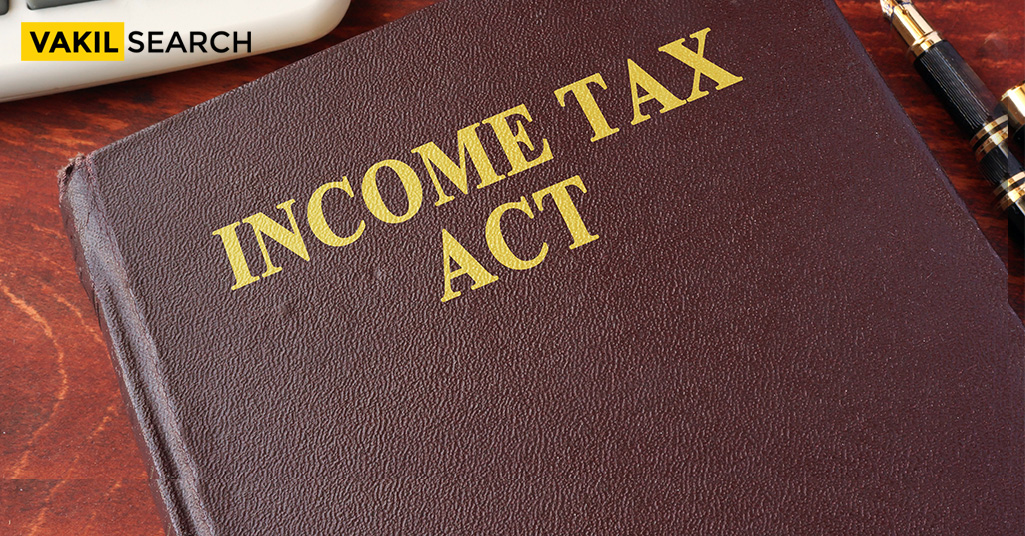Not filing ITR result in penalties under the Income Tax Act. What is a taxpayer wise penalty? and how to pay it ? Here are the answers
Filing your income tax returns provides numerous advantages. On the other hand, not filing ITR results in a variety of penalties under various sections of the Income Tax Act.
We have compiled every type of late penalty for failure to file ITR applicable under various sections. Once you know how to file ITR. Continue reading to find out which one applies to you and how you can get this payment cleared.
Section Wise Penalty For Not Filing ITR Before Last Date to File ITR
| Section | Nature Of Misdeed | Penalty |
| Section 234F | ITR filing after the last date to file ITR | If the ITR is submitted before the 31st December of the Appraisal Year, the fee is ₹5000; if the ITR is submitted after the 31st December but before the 31st March of the Assessment Year, the fee is ₹10,000. |
| Section 234A | A person passed the Income tax return filing last date and has an unpaid tax balance. | Since the prescribed due date, interest is at 1% per month on the outstanding tax amount. |
| Section 271H | Failure to file TDS and TCS returns by the deadline | ₹10,000-₹1,00,000, plus a late filing penalty of ₹200 per day until the TDS/TCS is paid under Section 234E. |
| Section 270A | A taxpayer who has earnings neglects to file his/her ITR or is discovered to have under-reported his income on his returns. | 50% of the total payable tax on revenue for which no return was filed |
What is the Taxpayer Penalty for Exceeding The Income Tax Return Filing Last Date
Salaried people
A total annual income of less than ₹2.5 lakhs: There is no penalty (No ITR penalty for nil return)
- People with a total yearly income of less than ₹5 lakhs: The maximum penalty is ₹1,000
- Up to ₹10,000 in total annual income above ₹5 lakhs
- Up to ₹ 10,000 for businesses
- Individuals who work for themselves: up to ₹ 10,000
Senior citizens
The penalty for failing to file an ITR under Section 234F applies only to senior citizens who meet the following criteria.
- 60-80 years of age, with a total annual income of more than ₹3 lakhs
- Over the age of 80, with a total annual income of more than ₹5 lakhs.
Do People with Incomes Less than the Taxable Limit have to Pay a Late ITR Penalty?
In general, the Income Tax Department does not impose any penalties for failure of income tax return filing last date on individuals or organizations whose total gross income is less than the exemption limit. However, the Union Budget 2019 introduced Income Tax Act amendments from AY 2020-21 that require ITR filing for taxpayers who meet the following conditions despite not having taxable income.
- Those who have spent more than ₹1 lakh on electricity consumption
- Individuals who have consumed more than ₹2 lakhs on foreign travel
- Those with a total deposit of more than ₹1 crore in one or more bank current accounts
- Those who live in India but earn a living from foreign assets. If you meet any of these or other conditions outlined in the most recent amendment to the Income Tax Act, you will be required to pay the prescribed penalty for failure to file an ITR. This, as previously stated, applies even to those who do not have taxable gross income.
How Should The ITR Penalty Be Paid?
You can resolve your late ITR filing penalty both online and offline. Here’s how to get your liability for crossing the income tax return filing last date
Offline procedure
Step 1: Navigate to the Income Tax India website: https://www.incometaxindia.gov.in/Pages/tax-services/file-income-tax-return.aspx
Step 2: Select Forms/Downloads from the top menu on the home page. From the drop-down menu, select Challans
Step 3: You will find a list of challans that you can download on the following page. Depending on your preference, select one of the PDF or Fillable Form options besides ITNS-280
Step 4: Either download the form or obtain it from the nearest bank branch
Fill out this form completely. Submit the form and the required penalty amount to a relevant bank’s counter. You can pay with cash or check and pick up your receipt.
This challan receipt serves as an acknowledgement of payment and can be used for challan verification in the future. If you don’t have this document, you won’t be able to prove that you paid your fine, which can lead to severe consequences later.
Can You Be Jailed For Not Filing ITR?
Until recently, several conditions described here were about the repercussions of failing to file ITR by the due date. If a taxpayer fails to file his or her income tax for an entire assessment year, the ITR department would issue a notice under Sections 142(1), 148, or 153A. If an ITR is not filed notwithstanding these steps, the individual may face prosecution for tax evasion under Section 276CC of the Income Tax Act. The following are the specifics of imprisonment.
- For alleged tax evasion in excess of ₹25 lakhs: Penalty for failure to file ITR + imprisonment for at least 6 months, with a maximum sentence of 7 years
- In other situations: Penalty + imprisonment for at least three months, with a maximum sentence of two years.
Conclusion
Until now, several conditions explained here were about the consequences of exceeding the last date to file ITR. The Income Tax department will deliver a notice under Sections 142(1), 148, or 153A if a taxpayer can-not file his/her income tax for an entire assessment year. If an ITR is not filed despite these measures, the individual may face prosecution for tax evasion under Section 276CC of the Income Tax Act. The following are the specifics of imprisonment.
- For potential tax evasion exceeding ₹25 lakhs: Penalty for failing to file ITR plus imprisonment for at least six months, which may continue up to 7 years
- In all other cases, the prescribed penalty is a fine plus imprisonment for at least three months, with a maximum sentence of two years.
There you have it – a comprehensive guide to the various penalties for filing tax returns late. If you did not file on time this time, pay the fine. Also, now that you are aware of all the negative circumstances, this time do not exceed the last date to file ITR next time.










